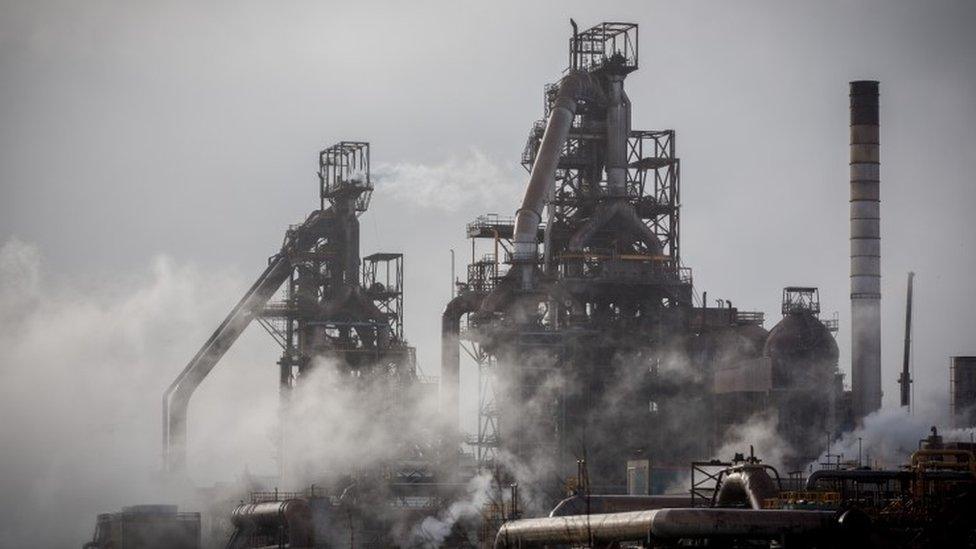£50m fresh start for Port Talbot Tata steelworks
- Published
- comments
'Brexit tariffs on cars would hit the steel industry'
The first new coil steel has rolled out of Tata's Welsh steelworks - after a £50m investment to refit a blast furnace.
The move should extend the life of blast furnace 5 in Port Talbot by seven years.
The firm's chief executive said it marked the "biggest single investment" in its European steel operations.
Tata and Germany's ThyssenKrupp plan to merge, in a bid to secure Tata's future.
Restarting the furnace will also be welcomed by other businesses in the steel supply chains across the UK.
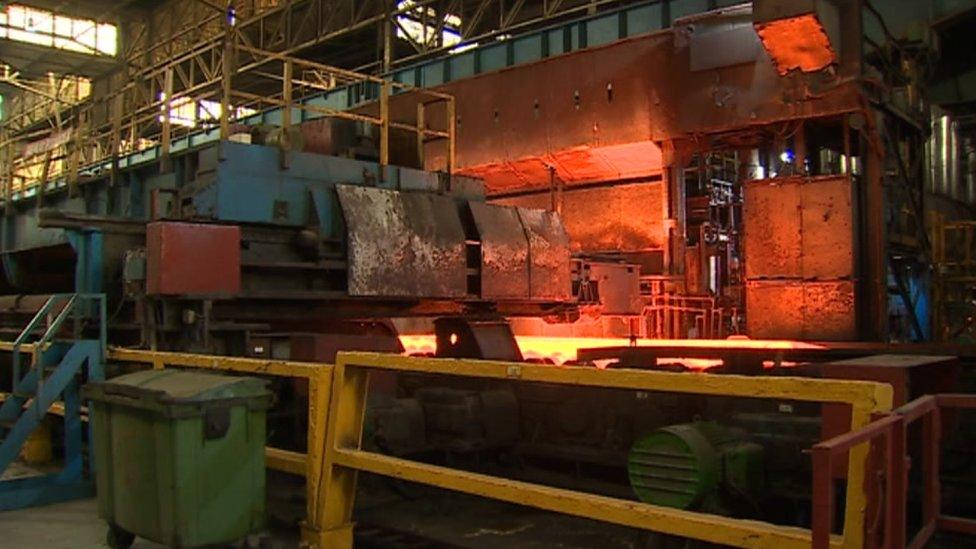
Port Talbot's steelworks is owned by Indian company Tata
Following the relighting of the furnace, the first steel has now been produced and turned into the finished product to be delivered to manufacturing business across the UK, from car makers to ship builders.
"What you see today in the blast furnace investment, we are committed to build on our future for the UK," said Hans Fischer, chief executive of Tata Steel's European operations.
"I think if the economy in the UK is doing well, is growing, and we are in effect the only flat steelmaking company in the UK, we will have a lot of benefits from that and we will use."
But Mr Fischer said he was "really worried" about a possible hard Brexit.
He added: "When you look to our production, more than 70% stays in the UK. So directly the impact of Brexit is maybe not that big.
"But if our customers are impacted very heavily then that immediately leads to a disturbance in the supply chain and that immediately leads to disturbances in our productions as well.
"In the short term that's what I'm really worried about. I really hope we can come to a last-minute deal but it should not be a hard Brexit."
Engineers drained the giant furnace in the autumn in order to carry out vital engineering work, replacing part of the heat resistant interior and key structural parts.
The waste gas and dust extraction system was also replaced before air at 1,200C brought the furnace back to life.
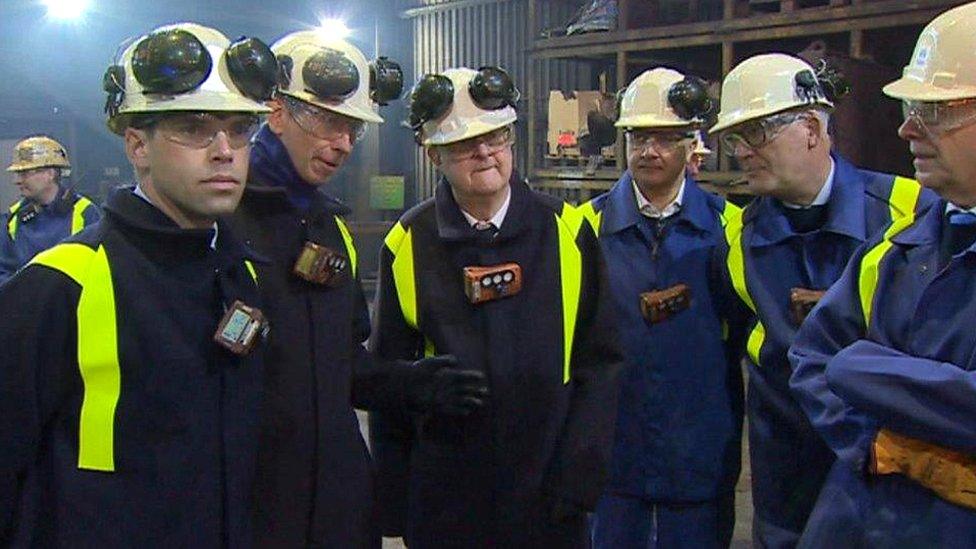
Tata management met First Minister Mark Drakeford and Economy Minister Ken Skates
Analysis by BBC Wales business correspondent Brian Meechan
This investment is part of the agreement reached between Tata and the unions that encouraged workers to accept a less generous pension scheme.
Tata pledged to keep both blast furnaces operating for at least five years, try to avoid compulsory redundancies and - if market conditions allowed - invest £1bn over 10 years.
The company has said it will honour those commitments despite a number of challenges.
The EU is investigating its planned merger with German company ThyssenKrupp over concerns that it could result in less choice and higher prices for customers.
It seems unlikely that the merger will be completely rejected but some parts of the business may have to be sold off before it is given the go-ahead.
The UK's future relationship with the EU after Brexit is another uncertainty.
But following years of turbulence at Port Talbot, it seems the company and unions have some confidence in the future.
- Published19 September 2018
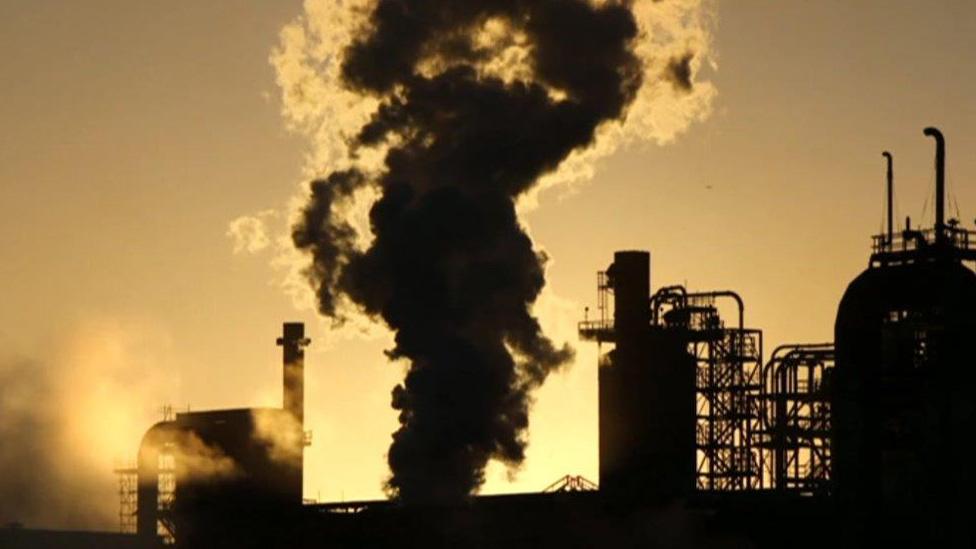
- Published2 July 2018
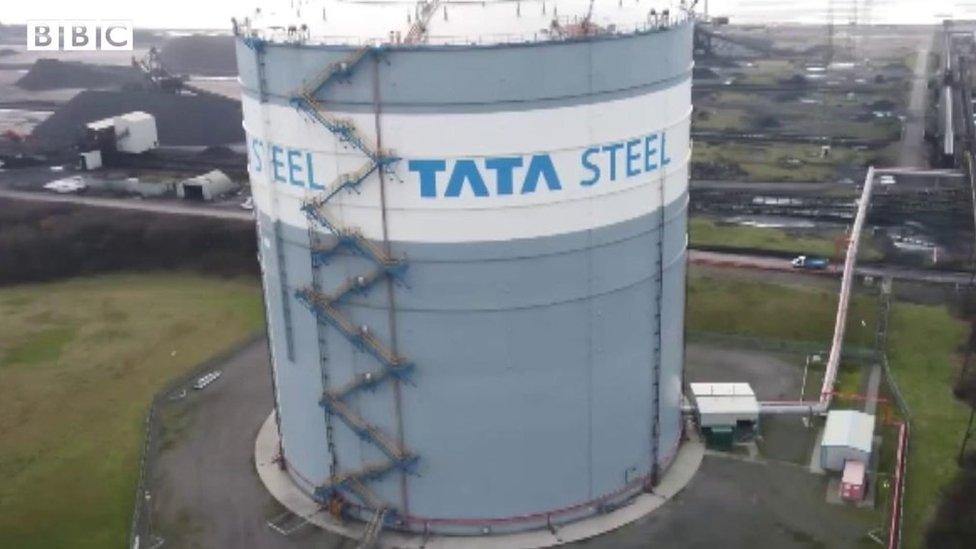
- Published12 February 2018
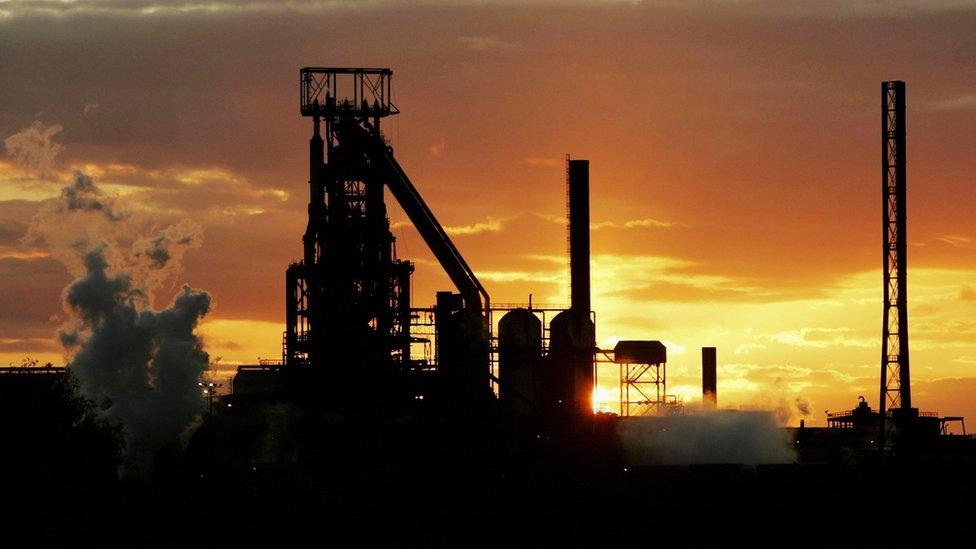
- Published8 February 2018
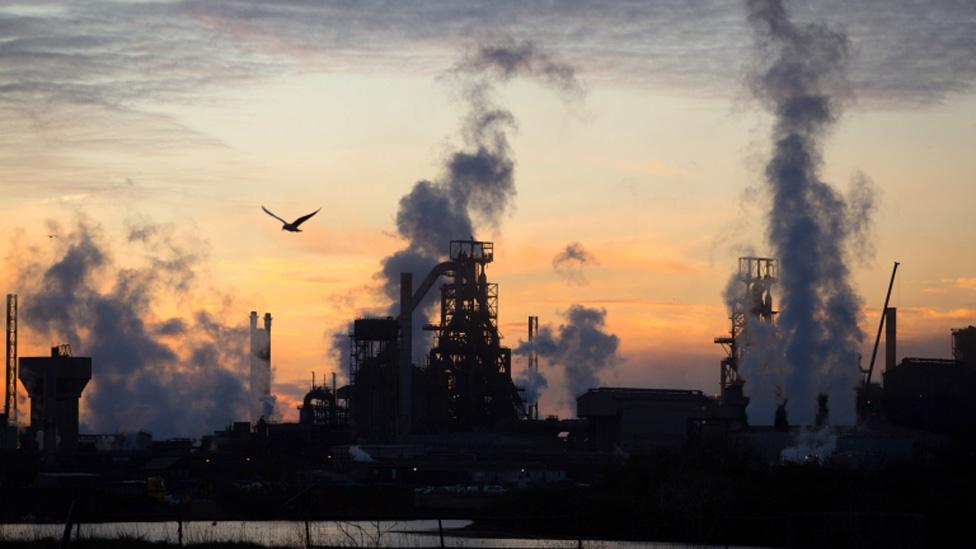
- Published30 June 2018
